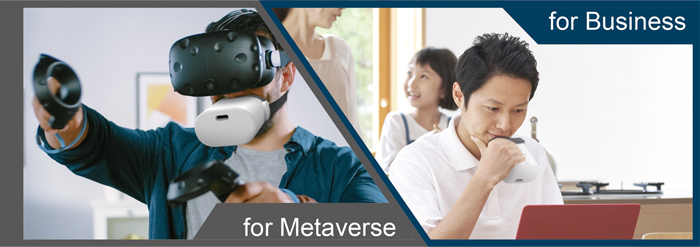Creepy-looking VR gadget ‘mutalk’ allows metaverse users to scream like nobody’s listening
Introducing ‘mutalk’, a new VR device created by Tokyo-based company Shiftall which acts as a mouth muzzle microphone that can capture sound directly from your mouth without the interference of background noise.
According to Shiftall’s website for the odd-looking technology, “the mutalk is a Bluetooth microphone with a mute function that prevents your voice from leaking out.” In other words, the device is designed to allow users in the metaverse to produce a lot of noise without fearing disturbing those around them.
The company goes on to state that the contemporary ‘pear of anguish’ comes with a detachable strap and can also be used for business purposes, such as conference calls. How lovely, a multipurpose netizen’s dream.
Although the main idea behind the mutalk is sound (no pun intended), many have been quick to point out the device’s creepy design and bizarre advertising pictures. Science and tech news publication Futurism described its publicity as “doctored stock images muzzling unsuspecting models with a white VR headset-shaped appendage covering their mouths.”

The article went on to stress how the “sensory deprivation” mouth-piece appears to look like an intense mediaeval gearpiece more likely to be worn in a traumatising interrogation or BDSM dungeon than in a VR enthusiast’s living room.
It should also be noted that Shiftall is owned by tech-giant Panasonic and boasts an impressive catalogue of unique virtual reality products. One of the most, shall we say, special designs is a smart mirror that comes with an equally helpful and daunting ‘benefit’—the ability to spot (and shame) an outfit-repeater.
NeSSA (Never Same Shirt Again) may well be your best friend or your biggest nightmare. The mirror digitally connects to the user’s calendar and, using a smart algorithm, infers from the names of attendees and events whether or not the (un)lucky owner’s current outfit has already been worn in front of the specific person they’re about to meet. If that’s the case, the mirror will automatically activate an inbuilt light feature and “warn” the user.
Thankfully, there are no current plans to collaborate with Amazon’s Alexa—a voice-activated response may be too painful.

Other Shiftall products include: HaritoraX 1.1, a space-saving wireless full-body tracking device and Pebble Feel, a VR experience and technology that allows you to customise and feel temperature preferences within the metaverse.
Virtual reality has continued to develop at great speed over the past few years. In 2020, robotic VR boots that allowed users to walk without actually moving forward made waves as a groundbreaking immersive experience. This technological feat, however, is now considered by many as child’s play in comparison to new products such as mutalk.
It’s both exciting and slightly terrifying to consider what the virtual future will hold.






